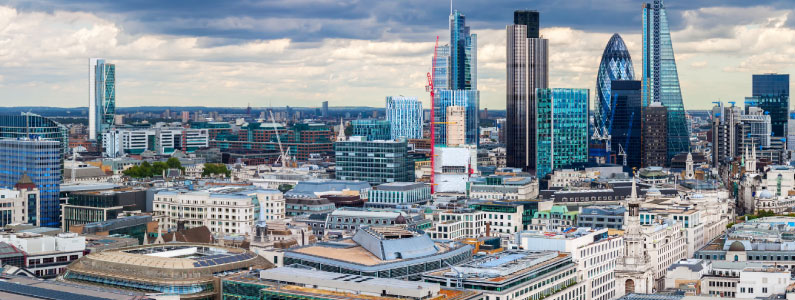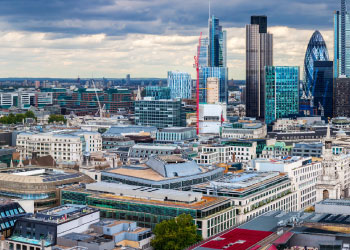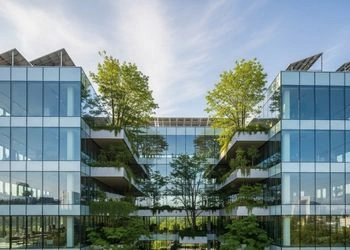Act Now To Improve your Business’s EPC Rating

With looming MEES deadlines ahead, a property’s EPC rating is top on the list of concerns for many CRE landlords and property managers. A recent survey confirmed that 100% of CRE landlords were aware of their commercial energy performance certificate (EPC) requirements, with 20% trapped in the planning phase.
With so many buildings falling foul of requirements (80% of London’s commercial buildings according to an LMG study), time is of the essence to make meaningful changes to improve your commercial EPC ratings. The risk of non-compliance includes:
- Costly emergency implementation of retrofit changes.
- Issues securing funding.
- Issues buying and leasing commercial property, creating stranded assets.
- The estimated rental losses as of June 2024 equate to around £750 million annually.
- Hefty fines and penalties – up to 20% of the rateable value of the property, capped at £150,000.
- The addition of your name to a register of non-compliance.
MEES: The Latest Overview on EPC Certificates and EPC Rating Requirements for CRE
The Minimum Energy Efficiency Standards (MEES) have been in place for some time, supporting the Government’s net-zero policies. MEES aims to ensure that commercial buildings meet specific energy performance standards, which require upgrades of inefficient buildings.
How does a commercial EPC certificate fit in with MEEs? Simply put, your EPC rating determines whether you comply with MEES requirements. A commercial energy performance certificate shows the energy efficiency of a building from A (most efficient) to G (least efficient).
The upcoming deadlines are the subject of focus for many landlords. The following are key MEES milestones and timings:
- 1 April 2023 – all commercial rented properties must have an EPC rating of at least E.
- 1 April 2025 and 1 April 2028 – a valid EPC must be submitted for every let property to a PRS compliance and exemption database.
- 1 April 2027 – a new EPC must be obtained to show improvement to an EPC rating of C or as much as possible.
- 2028 – the deadline for achieving EPC rating of C has been extended.
- 2030 – the deadline for achieving an EPC rating of B.
- Five years – the period of validity for an exemption under MEES.
- Ten years – the period of validity of an EPC rating.
There are also proposed MEES inspections to be conducted by local authorities, as well as additional grants and schemes for improved energy efficiency of commercial buildings.
Commercial EPC Exemptions
Does MEES apply to your commercial building? The following exemptions apply:
- Listed or officially protected buildings where efficiency improvements would lead to them being unacceptably altered.
- Temporary buildings that will be in use for up to 2 years.
- Buildings used for worship or religious activities.
- Industrial sites, workshops, or agricultural buildings with low energy requirements.
- Detached buildings with a floorspace of less than 50 square meters.
- Buildings that are set to be demolished.
Steps to Improve Your EPC Rating: How Can We Help?
It’s easy to feel overwhelmed by the improvements required to meet commercial EPC requirements. At Voltix Services, we are here to help – offering practical solutions and guiding you through the process. From easy gains for efficiency to building a long-term roadmap for agility around MEES requirements, our professional insights and comprehensive solutions.
1. Boiler Upgrades
Heating accounts for nearly half of non-domestic energy consumption. Installing a modern, efficient heating system can improve the EPC rating by up to 40 points. The Boiler Upgrade Scheme assists qualifying businesses with a grant to cover the change to carbon-friendly options.
Additionally, ensuring your boiler is well-maintained also affects the efficiency of heating systems.
2. Lighting Improvements
After heating, lighting is one of the most energy intensive systems in commercial buildings. Every business should move away from traditional lighting systems to LED, which may improve your commercial EPC rating by up to 5 points.
3. Renewable Energy Systems
Moving away from fossil fuels to more sustainable energy sources significantly impacts a building’s EPC rating. First, the viability and business case of a commercial solar array, for example, should be assessed. We are here to help with every step of the process.
4. Ventilation
Linked to heating systems, ensuring effective ventilation has a pivotal role to play in efficiency. Done properly, optimised ventilation systems retain heat and ensure sufficient airflow, reducing the need for energy intensive heating and cooling.
5. Energy Monitoring
Understanding energy consumption is important for driving efficiencies. Collecting and analysing consumption data is the shortest route to identifying and addressing areas of inefficiency and building strategies.
From providing tenants with tools to support energy efficiency to metering and monitoring solutions for smart energy management, we strategise for the success of every strategy to improve your EPC rating.
6. Hot Water Cylinder Jackets
Insulating hot water tanks reduces heat loss, which may slightly improve EPC ratings.
Contact Voltix Services to Plan the Way Forward for Your EPC Rating
It’s easy to feel overwhelmed by the improvements required to meet commercial EPC requirements. At Voltix Services, we are here to help – offering practical solutions and guiding you through the process. From easy gains for efficiency to building a long-term roadmap for agility around MEES requirements, our professional insights and comprehensive solutions.




